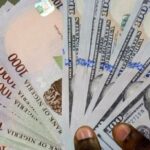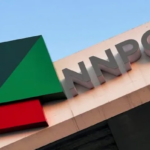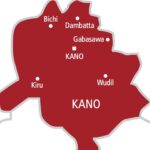The World Bank Country Office in Nigeria has disclosed that the incessant fuel scarcity and the inability of Nigerians to access the new naira notes may influence uncertainty ahead of the February 25 and March 10 elections in the country.
According to a document, the bank pointed out that the deadline for old notes will socially and economically affect vulnerable people in the country.
Daily Trust reports that after the initial January 31 deadline, the CBN, after reportedly seeking the approval of President Muhammadu Buhari had extended the deadline for the currency swap to February 10.
But it appears the extension has not changed anything for the better as millions of Nigerians could not access the new N1000, N500 and N200 notes while even the lower denominations of N100 and N50 that have not been altered are not available.
While politicians have continued to trade blames; and the CBN accusing commercial banks of hoarding the new naira notes to the extent of unleashing security agents on them, Nigerians in many states have ran out of patience and have started taking to the streets to protest the shortage of the naira.
Wike directs security agencies to clampdown on cultists
Ex-police officers protest in Ondo, ask court to jail IGP
What the World Bank said
Experts said the document released by the World Bank on its website should be taken seriously because the citizens are becoming increasingly overstretched as many could not access their hard-earned money to feed their families.
The document said, “The shortage of cash compounds fuel shortages, which have been ongoing for months. There is a clear risk that cash shortages cause hardship and frustration, which could escalate social tensions, especially in a febrile political environment ahead of elections on February 25 (presidential and parliamentary) and March 11 (gubernatorial).
The bank further disclosed 45 per cent of Nigerian adults had a bank account, 34 per cent pay or receive money digitally over the past year, while nine per cent made an in-store payment by digital means.
It projected Nigeria would not be able to attain a quick increase in digital payment to enhance the shortages of new notes across the country within the stipulated deadline.
Kaduna, Kogi, Zamfara take FG, CBN to S/Court
Amid the alarm by the World Bank, the governments of Kaduna, Kogi and Zamfara states have sued the federal government and the Central Bank of Nigeria (CBN) before the Supreme Court over the currency redesigning and “de-monetisation” policy.
They are seeking a declaration that the “Demonetization policy of the federation being currently carried out by the CBN under the directive of the President of the Federal Republic of Nigeria is not in compliance with the extant provisions of the Constitution of the Federal Republic of Nigeria 1999 (as amended), Central Bank of Nigeria Act, 2007 and actual laws on the subject.”
They are also asking the court to make a declaration that the three-month notice given by the federal government and the CBN under the directive of the president, the expiration of which will render the old bank notes inadmissible as legal tender, is in gross violation of the provisions of Section 20(3) of the CBN Act 2007, which specifies that reasonable notice must be given before such a policy and that the limit cannot be outside that provided under Section 22(1) of the CBN Act 2007.
The Attorney-General and Commissioner for Justice, Kaduna State, Aisha Dikko, in an affidavit, averred that although the naira redesign policy was introduced to encourage the cashless policy of the federal government, it is not all transactions that can be conveniently carried out through electronic means.
Dikko also pointed out that the federal government had embarked on the policy within a narrow and unworkable time frame, “And this has adversely affected Nigerian citizens within Kaduna, Kogi and Zamfara states as well as their governments, especially as the newly redesigned naira notes are not available for use by the people as well as the state governments.
“That the majority of the indigenes of the plaintiffs’ states who reside in the rural areas have been unable to exchange or deposit their old naira notes as there are no banks in the rural areas where the majority of the population of the states reside”.
No date has been fixed for hearing.
However, an FCT High Court has restrained the CBN, President Buhari and 27 commercial banks from extending or sabotaging the currency redesigning and cash withdrawal limit policy in the country.
Justice Eleojo Enenche on Monday further ordered the heads of the financial institutions to immediately appear before the court to show cause “Why they shall not be arrested and prosecuted for the economic and financial sabotage of the Federal Republic of Nigeria by their Illegal act of hoarding, withholding, not paying or disbursing the new N200, N500 and N1000 bank notes, being the legal tender of the Federal Republic of Nigeria to their respective customers, despite supplies of such currency.”
The political parties that went to court included Action Alliance (AA), Action Peoples Party (APP), Allied Peoples Movement (APM), and National Rescue Movement (NRM).
But Barrister Sam Kargbo (SAN) faulted the decision of the high court to listen to a matter already before the Supreme Court.
He said it was well within the right of the three state governments to approach the apex court as they had the locus to do so.
Kargbo, who stated this when he featured on Trust TV’s Daily Politics, also doubted the loyalty of the CBN governor to the Nigerian people.
“I have my serious doubt as to who the CBN governor is working for. Definitely not for Nigerians; definitely he has no interest for the survival and development of the economy. Under his watch, the naira is slipping by the minute.”
14 political parties threaten election boycott
Also, fourteen of the 18 registered political parties have said they would withdraw their participation in the general elections if the CBN extends the February 10 deadline for the use of old naira notes.
The National Chairman of the Action Alliance (AA), Kenneth Udeze, on Monday at a press conference by the Forum of Chairmen of Nigerian Political Parties and the Forum of Candidates for the 2023 General Election, said the CBN must not shift the deadline.
“We hereby announce our resolution that at least 14 of the 18 political parties in Nigeria will not be interested in the 2023 general election and indeed we shall withdraw all our participation from the electoral process if these currency policies are suspended or cancelled or if the deadline is further shifted,” Udeze said.
The forum said the policy would enhance the credibility of the 2023 election.
We must not politicise national security
A legal practitioner, Barrister Aminu Muhammad Sani, said as Nigeria approaches a critical moment of electing new leaders, there is the need for circumspection by all.
“The truth is that the Central Bank is not telling the truth, it is economical with the truth because there is a limit to how the commercial banks can hoard the new notes.
“Up till this evening, there are long queues of people looking for money at ATMs. This is definitely not fear.
“A friend of mine in a GTB branch in one of the north-western states swore by his creator that they don’t have a single new note in their safe.
“He said they have gone to the CBN branch in the state since morning and were told to wait, that the CBN branch was also awaiting the arrival of the new mints from Abuja,” he said.
Salihu Ibrahim, who leads an NGO, Citizens First Initiative (CFI) said President Muhammadu Buhari should speak to Nigerians before the end of the ten days extension.
“We have gauged the mood and it is not favourable. People protested in Lagos, Ibadan and many other places, the protest is approaching other parts of the country.
“The president must ensure that citizens are not buying fuel at between N350 and N500/l. He should talk to the CBN to release more money. There are places that till date, the people have not seen the new currency.
“We must do whatever it takes to control emotions,” he said.
CBN to blame – Peterside
Speaking at a Twitter Space conversation by by Prime Business on the theme, ‘The naira blame game: Banks, CBN and the politicians, a former Director General of Nigerian Maritime Administration and Safety Agency (NIMASA), Dr Dakuku Peterside said, “I don’t think the objective or the goal of the policy has been challenged. Unfortunately, CBN is the designer of the policy, regulator, operator and executor of the policy, so should share 70 per cent of the blame.
“Policy is always in the realm of politics. Policy and politics are like twins, policies affect the people and politics is about the representation of the people. They are inseparable.
“For me, the initial question is, was the execution thought through? I don’t think so. CBN was not going to be everywhere, did you model all those that would be involved in the execution? Did you anticipate challenges? Did you engage all those who will be involved? Do you have the necessary infrastructure in place for transition?
“Because we expect a change in behaviour with any new policy; is that infrastructure in place? I don’t think that was extensively examined. The intervention of the governors may have been driven by ulterior motives but we don’t expect leaders to be quiet when their people are suffering.
“The fact that they engage with the CBN and the president is not the same as deciding the direction of policy. It should not affect the independence of the CBN.”
He said the commercial banks must communicate regularly to say, this is how much we got, this is how much we have disbursed.
He said: “The truth today is that we are in a crisis situation and how do we address it, CBN needs to sit with the banks and make sense of what is happening. With the populace, there must be a constant flow of information. That will build confidence, reduce anxiety and remove uncertainty, which drives people to negative behavior.
“Put institutional processes in place that will make it impossible for banks to abuse their powers and licence.”
By Sunday M. Ogwu, Faruk Shuaibu & John C. Azu

 Join Daily Trust WhatsApp Community For Quick Access To News and Happenings Around You.
Join Daily Trust WhatsApp Community For Quick Access To News and Happenings Around You.

